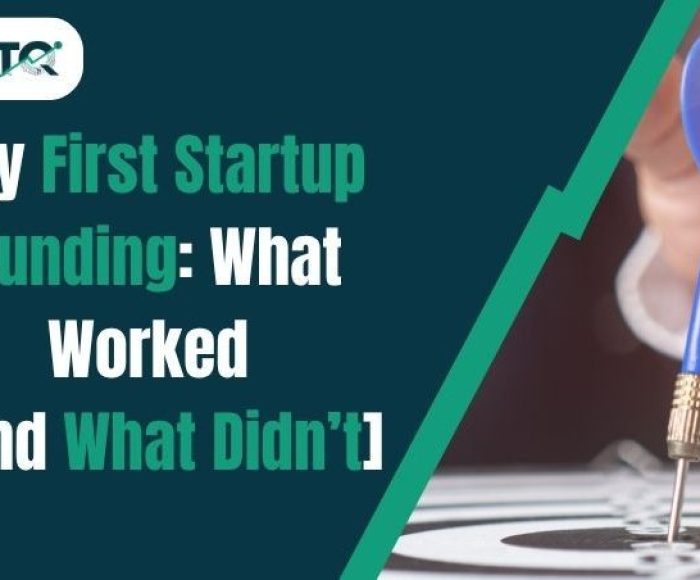Why Investment Banks Still Hold the Power in Big Deals?
When someone wants to attract investors, sell a company or make a strategic merger, they usually rely on the help of investment banks. However, one thing always comes to mind: How big are the typical transactions these banks manage? No matter if the investment is for a huge merger or a simple funding round, the average ticket size raised by banks shows the market’s confidence and how the economy is heading.
Let’s discuss how common investment banking deals sizes are, their structure and how they change depending on where and in which industries they happen.
What Does “Ticket Size” Mean in Investment Banking?
Basically, average ticket size means the entire capital involved in a transaction handled by an investment bank.
Whether it’s an IPO, a private equity round, debt syndication, or a merger, the typical investment bank ticket size depends on:
- Company size can range from a startup, SME (small to medium enterprise) or large enterprise.
- Decide if you are doing an M&A, issuing equity or raising debt.
- Business fields and economic industry
- Country or area
As an illustration, investing through private equity means dealing with amounts from ₹40 crore to ₹4,000 crore, whereas an IPO could go beyond ₹8,000 crore.
Why Ticket Size Matters?
- Allows us to assess potential investors such as angels, VCs, PEs and others.
- It impacts how much the company is worth and reduces the value of equity currently held.
- Sets the rules for how complex treatment is needed and what is needed for monitoring
- Changes the outlook of investors and determines the future development strategy.
Bonus Tip:
If you’re a startup founder struggling with business valuation or pitch decks, avoid relying on free online tools and templates. Most free valuation calculators use generic assumptions and overlook the unique strengths of your business. Similarly, pitch deck templates for startups often lack the customisation and investor insight needed to stand out. For serious fundraising, invest in expert-driven tools or consult professionals like FundTQ — where strategy meets execution.
Types of Tickets Invested into Startups by their Funding Level:
Indian investment bankers deal with different sizes of investments depending on the stage of growth. Let’s now discuss what makes up the average ticket size.
Seed Round and Early Stage
- Many buybacks involve an average amount of ₹80 lakhs to ₹15 crores.
- Some kinds of investors include angel investors, seed funds and early-stage VCs.
- Main objectives: Build the MVP and start discovering how successful the new app will be in the market
The Series A and B Rounds
- Most tickets purchased were for investments of ₹20 crores – ₹100 crores.
- Investor types include Institutional VCs as well as strategic investors.
- Aim: To expand the business, promote it and recruit more staff
End stage and Pre-IPO
- The average value of film tickets reaches from ₹150 crore to ₹800 crores.
- The capital comes from private equity groups, mega venture funds and hedge funds.
- The main reason is to broaden the company’s reach, carry out acquisitions and prepare for an initial public offering.
Mergers & Acquisitions (M&A): Where Crores Become Thousands
Average M&A deal size usually involve the most significant amounts of money. Many deals such as Tata’s Air India or Reliance’s startup purchases, typically have values in the thousands of crores.
1. Small Cap Mergers and Acquisitions
- The size of the company’s ticket is less than ₹400 crore.
- Handled by smaller companies located in a certain area
2. Mid-market deals in the M&A space
- The ticket size can be anything between ₹400 crore and ₹4,000 crore.
- Banks that belong to the mid-tier or major national advisory firms
3. This approach is also called M&A with Large-Cap companies
- The ticket size for this bond will be between ₹4,000 crore and ₹40,000 crore.
- International firms like Goldman Sachs, Morgan Stanley and Axis Capital are responsible for them.
Globally, the average M&A deal size stands around ₹1,200 crore, though India sees a wide spectrum depending on industry and policy climate.
Factors That Influence Ticket Size
How much a business is worth is referred to as its business valuation.
Business Valuation:
Valuing the company high lets you raise more capital without giving up a big percentage of the business. Just offering 20% of its equity enables a startup that is valued at ₹300 crores to raise ₹60 crores.
Industry Type:
Businesses that depend on resources (such as renewable energy and manufacturing) usually need bigger investments.
Asset-light models like SaaS and similar platforms grow when they need less initial capital.
Market Conditions:
Increased interest in the market leads to bigger investment shares from buyers.
If the market is sluggish or there is uncertainty about policies, investors generally invest less money.
Investor Type:
Investments from Angel investors can be between ₹10 lakhs and ₹2 crores.
Funds range from ₹5 crores to ₹100 crores provided by Venture Capital firms
M&A and IPO services are an important part of investment banks’ operations and they charge fees ranging from ₹50 crores to over ₹1000 crores.
Also Read: Top 5 Fundraising Mistakes Startups Make – And How to Avoid Them
How the Standard Size of Tickets Performs Compared to Other Global Laws?
- This is how tickets are usually priced across different regions, shown in rupees:
- In the USA, the market can be worth between ₹100 million and ₹1 trillion.
- In Europe, funds available are ranging from ₹600 crore to ₹40,000 crore
- In China & Southeast Asia, the investment is likely to be anywhere between ₹400 crore and ₹20,000 crore.
- ₹80 crore is the smallest amount and the largest figure is ₹20,000 crore for India.
Because of startups and mid-market companies being bought and sold, there is a lot of growth in the ₹100 crore – ₹2,000 crore range in Bengaluru, Mumbai, Delhi and Hyderabad.
How to Prepare Your Business for Large Funding Rounds?
Strengthen Financials:
- For at least 3 years, keep all your financial records showing what has been audited.
- Make sure your earnings keep rising, margins get better and return on investment improves.
Create a Solid Pitch Deck:
- Ensure that your pitch deck is well developed and easy to understand.
- Be sure to include the following in your investor presentation.
- Company’s vision and mission
- Size of the market (TAM/SAM/SOM)
- The way financial projections are done and money is used
- Bio of the founders and information about the team
Work with the Right Investment Bank:
- Choose bankers who display the characteristics you want.
- Concentrate on your area of work which can be tech, manufacturing or retail.
- We have managed to close tickets with similar sizes previously
- Can advise companies for a while after they get funds.
How Investment Banks Help in Big Capital Raises?
They do more than just act as intermediaries. They handle the creation of significant funding deals.
- Valuation: They find out the true value of your company
- Due Diligence: Checking the company’s finances, legal matters and overall operations thoroughly
- Structuring: Equity, debt or convertible which is the right choice for your business is chosen accordingly .
- Investor Reach: They target your deal to a global audience of high-net-worth investors, VC groups and funds.
- Compliance: During IPOs, they assist companies when complying with SEBI guideline
An investment bank will help you improve the valuation and control the risks of ₹50 crore just the same as ₹5,000 crore.
Typical Investment Bank Ticket Size by Type of Firm
Typical Investment Bank Ticket Sizes have different limits on the deals they accept. Here’s how it looks in INR:
Firm Type Typical Ticket Size (INR):
- Global Bulge Brackets range from ₹4,000 crore to more than ₹80,000 crore.
- Mid-Tier Banks from India usually fall between ₹400 crore – ₹4,000 crore.
- Earnings of Boutique Advisory Firms are generally between ₹20 crore and ₹500 crore irrespectively .
Smaller companies, including startups, first work with smaller institutions and then move on to banks with more capital as they require more resources.
Learn About: Future of Investment Banking in India
Conclusion:
In conclusion ,understanding ticket size is very important.
To know the average ticket size in investment banking is like understanding the health of the market. It helps organisations secure the money they need, guide expectations from investors and create strategies for upcoming growth.
Whether you’re aiming for a ₹100 crore growth round or a ₹10,000 crore IPO, knowing the typical investment bank ticket size keeps your fundraising goals aligned with market norms.
Key Takeaways:
- Ticket size equals the value of a deal: investment, M&A or capital raise.
- Average M&A deal size globally ≈ ₹1,200 crore; India varies widely
- Investment banks ensure the setup, assess the fees and finish deals of all kinds.
- Currently, funding rounds in India involve amounts of cash between ₹4 crore and ₹8,000 crore+
- The size of a business is often influenced by what is happening within the sector, the stage of development and the market aspects.
FAQs
1. What price is put up for an Indian IPO ticket?
An initial public offering (IPO) can be anything between ₹500 crores and ₹8,000+ crores, with the valuation of the company and investor interest playing key roles in the whittling down or up of the gross issue price.
2. Do investment banks work on deals under ₹50 crore?
That is especially the case for boutique and regional investment banks.
3. How does the sector impact ticket size?
Real estate and technology projects normally require large amounts of start-up money, but the service and retail sectors are often less expensive to get off the ground.
4. What’s the average investment bank capital raise size in India?
The figure may go from ₹160 crore to ₹8,000+ crore depending on what kind of transaction it is and how established the company is.
5. Are ticket sizes higher in debt or equity deals?
Because of the lower risk involved and larger borrowing figures, most debt raises are more than (₹800 crore+).





Comment (01)